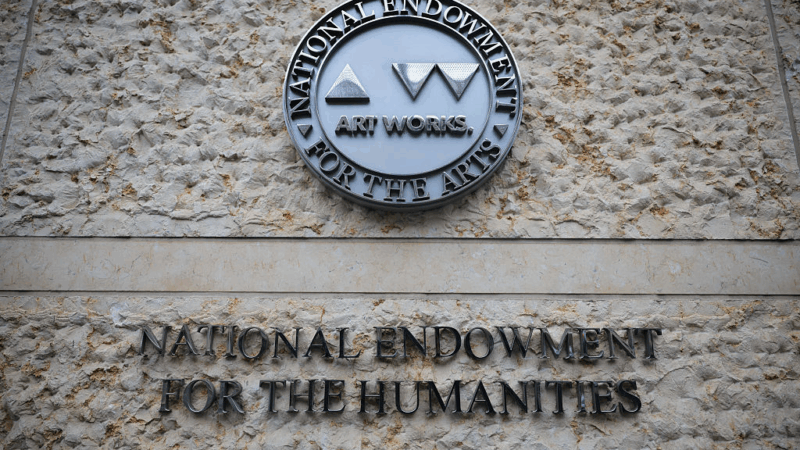Federal judge rules cuts to humanities grants were ‘unlawful’
A federal judge has ruled that the government’s abrupt elimination of humanities grants previously approved by Congress was “unlawful” and that a lawsuit brought by humanities groups can move forward.
In April, the Department of Government Efficiency (DOGE), terminated grants from the National Endowment for the Humanities to thousands of groups across the country including humanities councils, museums, historic sites, archives, libraries, educators and media outlets.
In May, Oregon Humanities and the Federation of State Humanities Councils sued the endowment and DOGE, alleging the sudden grant cuts were an “attempted destruction, spearheaded by DOGE, of the congressionally established federal-state partnership.”
In his decision, U.S. District Judge Michael H. Simon wrote that the councils were “likely to succeed on their claim that the withholding of the funds at issue in this case is unconstitutional.” He added, “The United States Constitution exclusively grants the power of the purse to Congress, not the President.”
Simon also wrote that, “Federal funding for the arts and humanities has enjoyed bipartisan support for decades, with Congress continuing to strengthen the statutes governing NEH and provide stable funding generation after generation.”
In a statement, Phoebe Stein, president of the Federation of State Humanities Councils, called the judge’s ruling “excellent” but cautioned that “humanities councils are still operating without their Congressionally appropriated funds, and many have already laid off staff and cancelled vital programs as a result.”
Adam Davis, executive director of Oregon Humanities, said the ruling is “motivating” and “one step — among many that are needed — in the large, ongoing endeavor to knit our communities and the country closer together.”
In July, a New York federal court similarly found that the government violated the law when it canceled humanities grants that had already been awarded. It said that the grants should be reinstated until after the case has been tried.
The National Endowment for the Humanities has not yet responded to NPR’s request for comment.
Jennifer Vanasco edited this story.
Amid ICE clashes, New Hampshire bishop urges clergy to prepare their wills
The Episcopal bishop of New Hampshire told priests protesting ICE to get their wills and affairs in order. Some praise the bishop, while other priests say they never signed up to be martyrs.
New York Giants hire John Harbaugh as coach after identifying him as their top choice
Harbaugh joins the Giants 11 days after he was fired by the Baltimore Ravens. The Super Bowl champion is now tasked with turning around a beleaguered franchise.
US launches new retaliatory strike in Syria, killing leader tied to deadly Islamic State ambush
A third round of retaliatory strikes by the U.S. in Syria has resulted in the death of an Al-Qaeda-affiliated leader, said U.S. Central Command.
NASA rolls out Artemis II craft ahead of crewed lunar orbit
Mission Artemis plans to send Americans to the moon for the first time since the Nixon administration.
Trump says 8 EU countries to be charged 10% tariff for opposing US control of Greenland
In a post on social media, Trump said a 10% tariff will take effect on Feb. 1, and will climb to 25% on June 1 if a deal is not in place for the United States to purchase Greenland.
‘Not for sale’: massive protest in Copenhagen against Trump’s desire to acquire Greenland
Thousands of people rallied in Copenhagen to push back on President Trump's rhetoric that the U.S. should acquire Greenland.






